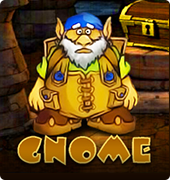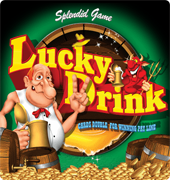| Виробник | Gambling Builder |
| Кол-во линий | 9041 |
| Кол-во барабанов | 7 |
| Фриспіни | Відсутнє |
| Бонусний раунд | Відсутнє |
| Мобільна версія | Так |
| Гра на подвоєння | Так |
Грати в Scarface (Лицо со шрамом) в онлайн казино:
K Walking Streets Moscow. Moscow-City - YouTube
President Gorbachev’s extraordinary six-year rule and the country over which he presided came to an end with a whimper. When the moment came for the Soviet leader to sign himself and the USSR into history on Christmas Day, his pen ran out.
Moscow-City 7 surprising facts about the Russian. - Russia Beyond
He had to borrow one from an American television interviewer to sign the decree that passed control over the Soviet Union’s nuclear arsenal to Boris Yeltsin. Then he gave a brief interview to the cameras, stood up and walked out of the Kremlin. He looked exhausted and drained on Wednesday when he made his broadcast to the nation announcing his resignation, just before signing the decree.

But he spoke with dignity and courage, listing the achievements of perestroika and once more bemoaning the disintegration of the union he believed in so profoundly, almost alone. Characteristically, too, he fought on almost to the end, trying to preserve the union and his own position.
He sent signals to the military, hoping the last all-union institution would back him in action against what he saw as an unconstitutional seizure of power by Boris Yeltsin and his colleagues in Ukraine and Byelorussia. According to diplomatic sources, the presidents of those two republics, Leonid Kravchuk and Stanislav Shushkevich, avoided coming to Moscow in case they were arrested.
Новые бездепы в казино в 2021 году за регистрацию с выводом денег для.
But Mr Gorbachev’s position was fatally weakened by the republics’ refusal to fund his government. He tried playing the Central Asia card, knowing he had a strong pro-union ally in Nursultan Nazarbayev, the president of Kazakhstan, and that the other Central Asian leaders preferred him to Mr Yeltsin.
But Mr Nazarbayev, though angry at not being invited to the first Slav meeting in Brest to set up the Commonwealth of Independent States, felt which way the wind was blowing. So power slipped inexorably from Mr Gorbachev’s grasp, and he was left only with a humiliating shell of office from which he had no choice but to depart. It was, he told the nation, a matter of moral principle. ‘I have firmly supported the independence of peoples and the sovereignty of republics.

But at the same time I am for the preservation of the union state …
The most dangerous thing about this crisis is the collapse of statehood,’ he declared. ‘I am concerned that the people of this country have ceased to be citizens of a great power.’Nationalism was always his blind spot. But loyalty triumphed to the country he surely still considers himself a citizen of.
Бездепозитные бонусы онлайн-казино за регистрацию -
He did not believe in the commonwealth, he said, but now that the decision to set it up had been taken by the 11 presidents in Alma Ata last Saturday, ‘I will do everything I can to ensure that the agreements signed there lead to real concord in society.’He admitted he had made mistakes in carrying out perestroika and glasnost, and he knew how many people felt about him, but he had no regrets. It was always a risky business launching reforms on this scale, he said, ‘but even today I’m convinced that the democratic reform we launched in the spring of 1985 was historically correct.’Finally, he appealed to the nation ‘to preserve the democratic achievements won during the past few years. They were acquired through much suffering and tragedy.
They are not to be abandoned, whatever the circumstances or pretexts.’Unloved and unappreciated by the overwhelming majority of former Soviet citizens, Mr Gorbachev nonetheless received many moving tributes from admirers and former colleagues for his historic role.

 1.Українська Вулкан
1.Українська Вулкан  2.Вулкан Клуб
2.Вулкан Клуб  3.GMSlots
3.GMSlots  4.MaxBet
4.MaxBet  5.Eldorado Club
5.Eldorado Club  6.Joycasino
6.Joycasino 




